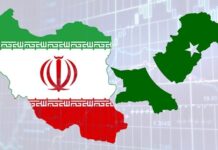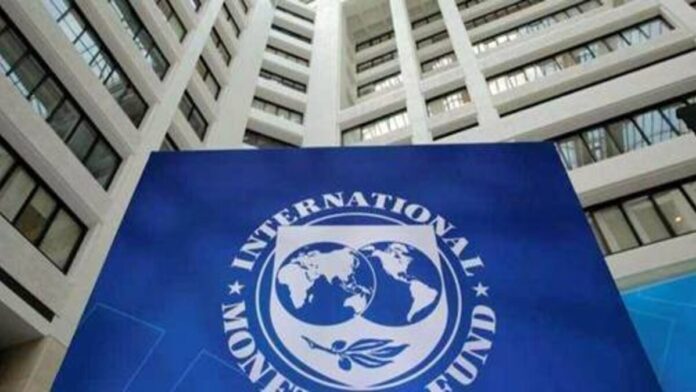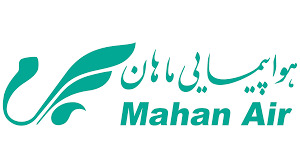The Executive Board of the International Monetary Fund (IMF) on Monday approved the final tranche of $1.1 billion for Pakistan under the $3 billion Standby Arrangement (SBA).
“The Board’s decision allows for an immediate disbursement of SDR 828 million (around $1.1 billion), bringing total disbursements under the arrangement to SDR 2.250 billion (about $3 billion),” the global lender said in a press statement.
This development came shortly after Prime Minister Shehbaz Sharif, at the closing session of the World Economic Forum in Riyadh, described Pakistan’s debt situation as a severe challenge for his administration.
Pakistan’s 9-month SBA, approved by the Executive Board on July 12, 2023, successfully provided a policy anchor to address domestic and external imbalances as well as a framework for financial support from multilateral and bilateral partners, the statement added.
The program focused on: (i) necessary fiscal adjustment and maintenance of debt sustainability via FY24 budget implementation; (ii) protection of critical social spending; (iii) buffering external shocks and eliminating FX shortages by returning to proper FX market functioning; (iv) making progress on disinflation by maintaining a tight monetary policy; and (v) furthering progress on structural reforms, focused on energy sector viability, SOE governance, and climate resilience.
The IMF further added that Pakistan’s macroeconomic conditions have improved over the course of the program. Growth of 2% is expected in FY24 given continued recovery in the second half of the fiscal year.
The fiscal position continues to strengthen with a primary surplus of 1.8% of GDP achieved in the first half of fiscal year 2024, well ahead of projections and putting Pakistan on track to achieve its end-FY24 target primary surplus of 0.4% of GDP, the statement added.
The IMF said that the inflation in Pakistan, while still elevated, continues to decline, and, with appropriately tight, data-driven monetary policy maintained, is expected to reach around 20% by end-June.
“Assuming ongoing sound policies and reform efforts, inflation should return to the SBP’s target with growth continuing to strengthen over the medium term. Gross reserves have increased to around $8 billion, up from $4.5 billion at the start of the program, and are projected to continue being rebuilt over the medium term.”
Following the Executive Board discussion, Antoinette Sayeh, Deputy Managing Director and Chair said in her statement: “Pakistan’s determined policy efforts under the 2023 Stand‑By Arrangement (SBA) have brought progress in restoring economic stability. Moderate growth has returned; external pressures have eased; and while still elevated, inflation has begun to decline. Given the significant challenges ahead, Pakistan should capitalise on this hard‑won stability, persevering—beyond the current arrangement—with sound macroeconomic policies and structural reforms to create stronger, inclusive, and sustainable growth. Continued external support will also be critical.”
“The authorities’ revenue performance, as well as federal spending restraint, helped achieve a sizeable primary surplus in the first half of FY2024, in line with program targets. Continued revenue mobilization efforts and spending discipline at both federal and provincial levels remain critical to ensure that the primary surplus target is achieved. Beyond FY2024, continued fiscal sustainability and additional space for social and development spending depend on further mobilizing revenues, especially from non‑filers and undertaxed sectors, and on improving public financial management.”
“The authorities have stabilized the energy sector’s circular debt over the course of the SBA through timely tariff adjustments and enhanced collection efforts. While these actions need to continue, it is also critical that the authorities undertake cost‑side reforms to address the sector’s underlying issues and viability.
“The State Bank of Pakistan’s tight monetary policy stance remains appropriate until inflation returns to more moderate levels. Further improvements in the functioning of the foreign exchange (FX) market, together with a market‑determined exchange rate, will help buffer external shocks and attract financing, thereby supporting competitiveness and growth. The significant rebuilding of FX reserves under the SBA needs to continue. Moreover, stronger action to address undercapitalized financial institutions and, more broadly, vigilance over the financial sector are needed to ensure financial stability.
“Achieving strong, long‑term inclusive growth and creating jobs require accelerating structural reforms and continued protection of the most vulnerable through an adequately‑financed Benazir Income Support Program. Priorities include advancing the reform of state-owned enterprises (SOEs), including ensuring that all SOEs fall under the new policy framework; strengthening governance and anti‑corruption institutions; and continuing to build climate resilience.”
On the flip side, Pakistan is seeking a new long-term, larger IMF loan. Finance Minister Muhammad Aurangzeb said Islamabad could secure a staff-level agreement on the new program by early July.
Islamabad is yet to make a formal request, but the Fund and the government are already in discussions.
If secured, it would be the 24th IMF bailout for Pakistan.
The $350 billion economy faces a chronic balance of payment crisis, with nearly $24 billion to repay in debt and interest over the next fiscal year – three times more than its central bank’s foreign currency reserves.
Pakistan’s finance ministry expects the economy to grow by 2.6% in the current fiscal year ending June, while average inflation is projected to stand at 24%, down from 29.2% in fiscal year 2023/2024. Inflation soared to a record high of 38% last May.
























